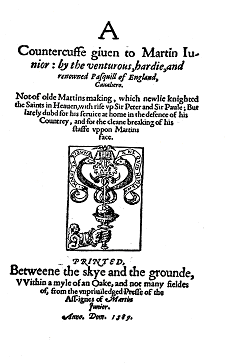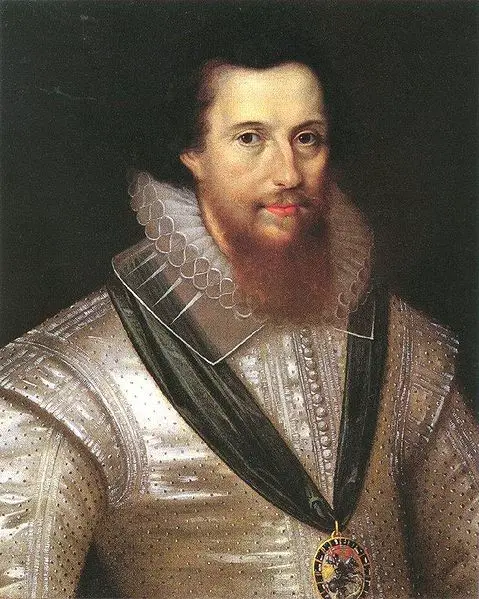 On this day in history, 23rd February 1554, at nine o'clock in the morning, Henry Grey, Duke of Suffolk, was led out onto the scaffold on Tower Hill and beheaded. His daughter, Lady Jane Grey, or Queen Jane as I like to call her, had been executed eleven days earlier, along with her husband, Lord Guildford Dudley.
On this day in history, 23rd February 1554, at nine o'clock in the morning, Henry Grey, Duke of Suffolk, was led out onto the scaffold on Tower Hill and beheaded. His daughter, Lady Jane Grey, or Queen Jane as I like to call her, had been executed eleven days earlier, along with her husband, Lord Guildford Dudley.
Suffolk's execution was down to his involvement in Wyatt's Rebellion, a rebellion which sought to depose Mary I and replace her with her half-sister Elizabeth. The rebellion failed and Suffolk was arrested as he attempted to flee the country in disguise. He was tried for high treason on 17th February at Westminster Hall, having been charged with inciting war in the county of Leicester, posting proclamations against the Spanish marriage, and plotting the death of the queen. He was condemned to death.
Here is martyrologist John Foxe's account of Suffolk's execution:
"On Friday the twenty-third of February, 1554, about nine of the clock in the forenoon, the Lord Henry Gray, duke of Suffolk, was brought forth of the Tower of London unto the scaffold on the Tower Hill, with a great company, &c.; and in his coming thither, there accompanied him Dr. Weston, as his ghostly father: notwithstanding, as it should seem, against the will of the said duke -- for when the duke went up to the scaffold, the said Weston being on the left hand, pressed to go up with him. The duke with his hand put him down again off the stairs; and Weston, taking hold of the duke, forced him down likewise. And as they ascended the second time, the duke again put him down.
Then Weston said, that it was the queen's pleasure he should so do. Wherewith the duke casting his hands abroad, ascended up the scaffold, and paused a pretty while after. And then he said:
"Masters, I have offended the queen and her laws, and thereby am justly condemned to die, and am willing to die, desiring all men to be obedient. And I pray God that this my death may be an en-sample to all men, beseeching you all to bear me witness, that I die in the faith of Christ, trusting to be saved by his blood only, and by no other trumpery, the which died for me, and for all them that truly repent, and stedfastly trust in him. And I do repent, desiring you all to pray to God for me; and that when you see my breath depart from me, you will pray to God that he may receive my soul."
And then he desired all men to forgive him, saying, that the queen had forgiven him.
Then Master Weston declared with a loud voice, that the queen's Majesty had forgiven him. With that divers of the standers-by said, with meetly good and audible voice: "Such forgiveness God send thee" (meaning Dr. Weston). Then the duke kneeled down upon his knees, and said the psalm, Miserere mei Deus, unto the end, holding up his hands, and looking up to heaven. And when he had ended the psalm, he said, In manes tuus, Domine, commendo spiritum meum, &c. Then he arose and stood up, and delivered his cap and his scarf unto the executioner.
Then the said executioner kneeled down, and asked the duke forgiveness. And the duke said, "God forgive thee, and I do: and when thou dost thine office, I pray thee do it well, and bring me out of this world quickly; and God have mercy to thee." Then stood there a man, and said, "My Lord, how shall I do for the money that you do owe me?" And the duke said, " Alas, good fellow! I pray thee trouble me not now; but go thy way to my officers." Then he knit a kercher about his face, and kneeled down and said, "Our Father which art in heaven," &c., unto the end. And then he said, "Christ have mercy upon me;" and laid down his head on the block, and the executioner took the axe, and, at the first chop, struck off his head, and held it up to the people, &c."
Here is another account from The chronicle of Queen Jane, and of two years of Queen Mary, and especially of the rebellion of Sir Thomas Wyat:
"Fridaie the xxiij th of Februarie, an 1553 [note: the Tudor calendar year did not start until 25th March], the duke of Suffolke was behedded at Tower hille. His wourdes at the comyng on the scaffolde were theis followeing, or moche like : " Good people, this daie I am come hether to dye, being one whom the lawe hathe justlie condempned, and one who hathe no lesse deserved for my dysobedyence against the quenes highenes, of whom I do moste humbly axe forgevenes, and I truste she dothe and will forgyve me." Then maister Western, his confessor, standing by, saide, "My lorde, hir grace hathe allredy forgeven and praieth for you." Then saide the duke, " I beseche you all, goode people, to lett me be an example to you all for obedyence to the quene and the majestrates, for the contrarie therof hath brought me [to this end]. And also I shall most hartely desire you all to beare me witnes that I do dye a faythefull and true Christian, beleving to be saved by non other but onely by allmightie God, thoroughe the passion of his son Jesus Christ. And nowe I pray you to praie with me." Then he kneled downe, and Weston with him, and saide the sallme of "Miserere mei Deus" and " In te, Domine, speravi," the duke one verse and Weston an other. Which don, he dyd put of his gown and his doblet. Then kniting the kercheve himself about his eyes, helde uppe his handes to heaven, and after laie downe along, with his hedd apon the blocke, whiche at one stroke was striken of by the hangman."
Suffolk's remains were buried in the Chapel of St Peter ad Vincula at the Tower of London.
Notes and Sources
Picture: The execution of the Duke of Suffolk, Foxe's Book of Martyrs.
- Foxe's Book of Martyrs - this can be read at http://www.exclassics.com/foxe/foxe258.htm
- ed. Nichols, John Gough (1850) The chronicle of Queen Jane, and of two years of Queen Mary, and especially of the rebellion of Sir Thomas Wyat, written by a resident in the Tower of London, p. 63-64. This can be read at https://archive.org/stream/chronicleofqueen00nichuoft#page/62/mode/2up



When the Queen pardons you for treason, you stay out of trouble, you don’t rebel again, try to get the Queen killed and replaced again…not very smart. Definitely not smart.
Yes, he didn’t really think, did he? He must have really thought that the rebellion would be successful.